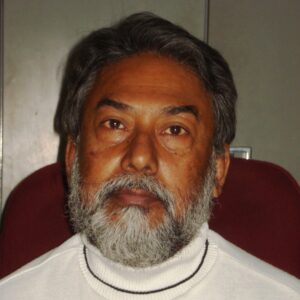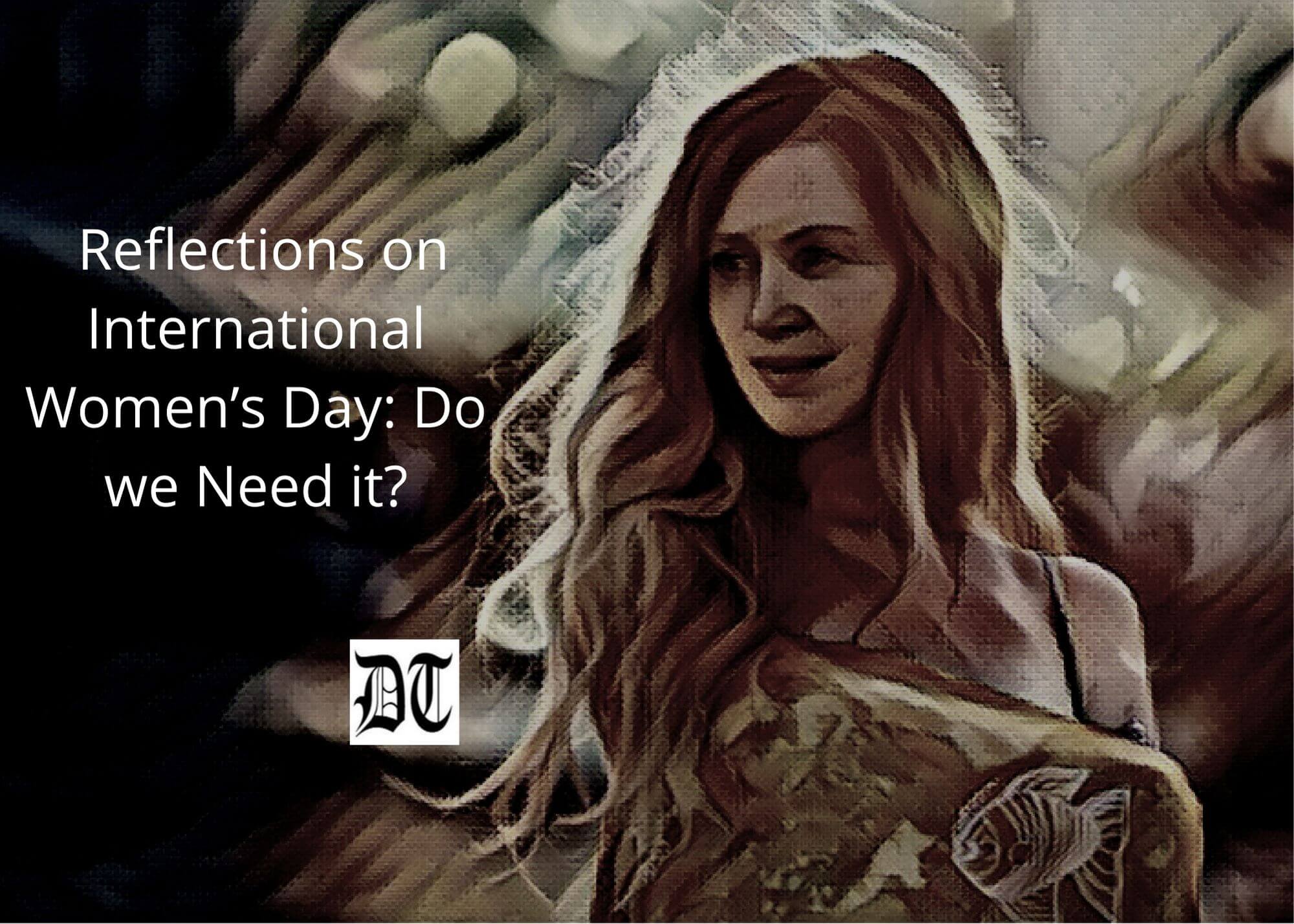Was the Early Man, living naked in caves and treetops, more civilised than most of us? We have clothed ourselves differently and have created a chasm between us and our lesser fortunate brethren. Bhaskar takes a ‘journey within’ to expose the deep rooted sickness ingrained in the Indian society.
Human civilisation, in time, as I see it, is in the shape of a U. I link here openness and degree of civilisation. One may link it also with sound, size, precision, etc. I, however, choose to be blunt, as I see things these days in audio-visual media and in the light of what I have gone through the history of mankind. Early man was naked as they came out from the caves, climbed down from the trees, etc and had to survive vis-à-vis the other competitors for survival. It was simple survival instinct with presumably no intention to get the others extinct. As man started to develop in the sense of being more civilised, he started learning the lessons of covering himself with tree leaves and subsequently with manufactured clothes. He started forming groups, including some in the common interest group and excluding others. The instinct remained survival but now a little more than that. Now we are in an era where we have again started unclothing ourselves if the audio-visual bodies are not virtual but real.
What bothers me more is not the unclothing of human bodies but the sick mentality of human mind. This has become more naked. Visionaries say it is shackled, some say it is colonised. What I find in the ‘Brahminical order’ in at least Uttar Pradesh is a shackled society with pervasive fear among the majority of people at the bottom of the pyramid. The top layer of society is constituted by birth by the Brahmins and the Thakurs, who run the society-economy-polity-culture by ownership-cum-control over land-money-muscle power. The cultural conquest is a corollary.
It’s a constant I and they discourse within us: I am superior, they are inferior. I am pure, they are impure. I am a Brahmin, they are Sudras (Dalits, marginalised). My job is white, so I am clean. They clean my desk, so they are unclean. I rule, they obey me. I keep si lence, when they do something acknowledgeable. They keep silence and wait in the queue to get my acknowledgement. I force upon them my ideas, which I say ‘sanskritised’. I show benevolence for them and their children, because they cannot afford for the education of their children. I pay them ‘Bakshis’ (as the driver of my car, or a door keeper where I take food with them waiting outside, or as table boy). They have no choice but to remain happy with that. I few days back I had some surplus time to talk with an eminent person settled in the city of Allahabad. I narrated with all my passion how a boy of ten years had to drop out from the class I was reading in. The person promptly said it was the divine wish. The mind is sick. I keep others at bay lest they pollute me and the group that I protect. I, however, use and misuse them and appropriate the fruits of their labour. I call it manual and menial labour. I preach for others and at the least supervise over others’ manual work. Working manually is degraded. I keep the sanctity of my caste. I live in casteism. It helps me. I maintain multiple boundaries to protect me over generations. The weapons of protection are my knowledge. My knowledge is recorded, it is dominant knowledge. I may like to document life-living of others. It is for my elevation. The object-population remains object. I preach; they listen. I maintain social stagnation and camouflage it as stability. If others disturb this, I call them trouble-makers (Maoists, Naxalites, criminals, terrorists, etc). Sometimes the trouble-makers are killed in (fake) encounters. I ensure peace. I camouflage my protection of property in the name of ‘social peace’.
lence, when they do something acknowledgeable. They keep silence and wait in the queue to get my acknowledgement. I force upon them my ideas, which I say ‘sanskritised’. I show benevolence for them and their children, because they cannot afford for the education of their children. I pay them ‘Bakshis’ (as the driver of my car, or a door keeper where I take food with them waiting outside, or as table boy). They have no choice but to remain happy with that. I few days back I had some surplus time to talk with an eminent person settled in the city of Allahabad. I narrated with all my passion how a boy of ten years had to drop out from the class I was reading in. The person promptly said it was the divine wish. The mind is sick. I keep others at bay lest they pollute me and the group that I protect. I, however, use and misuse them and appropriate the fruits of their labour. I call it manual and menial labour. I preach for others and at the least supervise over others’ manual work. Working manually is degraded. I keep the sanctity of my caste. I live in casteism. It helps me. I maintain multiple boundaries to protect me over generations. The weapons of protection are my knowledge. My knowledge is recorded, it is dominant knowledge. I may like to document life-living of others. It is for my elevation. The object-population remains object. I preach; they listen. I maintain social stagnation and camouflage it as stability. If others disturb this, I call them trouble-makers (Maoists, Naxalites, criminals, terrorists, etc). Sometimes the trouble-makers are killed in (fake) encounters. I ensure peace. I camouflage my protection of property in the name of ‘social peace’.
What I conceal is stagnation and retardation. Through norms and rituals, I keep stagnation. The norms become parts of the routine that I impose on others. The silence of others is taken as consent. My silence is my plan (conspiracy) to protect my property and power. Civilisation reaches its higher stage by more silence. So I claim to be more civilised. I need not resist, I need not shout, because my property, position and power are protected. It is for others to prove their sense of civilisation by keeping silence. The silence keeps the society sick.
Pix from Net



 By
By


A lucid and chilling analysis of the attitudinal chains that bind and stunt a society’s growth.